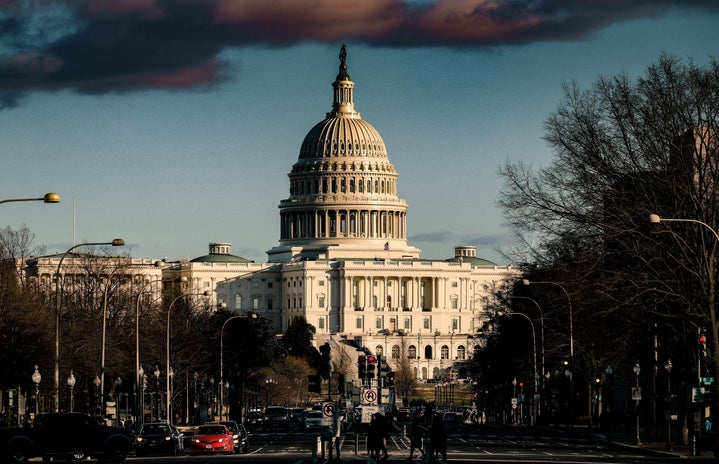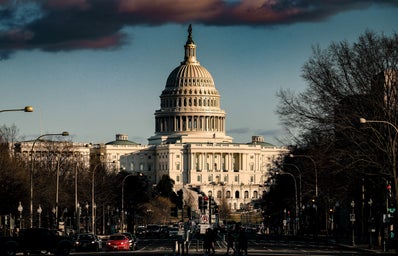On October 16, 2020, Amazon Prime released the professionally shot recording of Heidi Shreck’s groundbreaking “What the Constitution Means to Me.” This play began performances in 2017, making it to the Hayes Theater on Broadway in 2019. It was nominated for Best Play at the 2019 Tony Awards, and was a Pulitzer Prize finalist in the same year. I tried to see the tour in Chicago over spring break. It sold out before I could get tickets, and then was cancelled. When the tour does start up again, it will be going to Boston. Performances will someday be at the Huntington Avenue Theater, right down the street from the Museum of Fine Arts.
This recording includes Heidi Shreck, Mike Iveson, and Rosdely Ciprian all playing themselves. This is a deeply personal show for Heidi. Almost the entire show is her standing and speaking with stories from her life. It begins with a simple problem: Heidi spent her adolescence at debate competitions, arguing about the rights granted to the public by the Constitution. She wanted to reread her prize-winning speech and understand why she was so passionate about this document at fifteen. When she discovers her mother threw away this speech, she attempts to reassess her understanding of this document. She examines the role this Constitution played in her life, her family’s history, and generations of people before her. She intertwines facts, court cases, and deeply personal stories to show the real effects this document has.
It is a deeply moving piece of theater. She discusses her abortion at 21, sexual assault, and her family’s history with domestic violence. Her great-great-grandmother was a mail-order bride from Germany and died in a mental institution from Melancholia at 36. Not much is known about her life. Her grandmother was in an abusive relationship, and this only stopped when Heidi’s mother and aunt testified against him in a court of law. She notes that she was lucky that law enforcement was there to help her family be protected. She also notes that this does not always happen.
For me, one of the most deeply moving parts was the analysis of the 2004 Supreme Court Case “Castle Rock v. Gonzales.” Anton Scalia was an outspoken justice within this case. Jessica Gonzalez, who now goes by the name Lenahan, obtained a restraining order from her abusive ex-husband. He kidnapped her children. She went to the police, bringing her order, begging them for help. She called multiple times. Around midnight, she was told an officer was coming to her home. Instead, he went to dinner. In this time, her ex-husband legally bought a gun and opened fire at the police station at 3 AM the following morning. The bodies of Jessica’s daughters were in his car: Rebecca, age 10, Katheryn age 8, and Leslie, age 7. She sued the city for failing to act and won this lawsuit. The city challenged this, eventually bringing it to the Supreme Court, where the court sided with the city: that police officers have discretion with restraining orders and cases they choose to take on. The court, led in this case by Anton Scalia, decided that “shall” does not mean “must”. Therefore, a police department cannot be sued for failing to enforce a restraining order, because it does not mean that they are obligated to. Actually, this case was then brought to the Inter-American Commission on Human Rights, an international board designed to make sure human rights are being respected and defended across North and South America. It found that the United States was responsible for human rights violations against Jessica and her daughters. The highest court, the court we look to for protection and the deepest truth within this document, was responsible for human rights violations. The court we trust to interpret the Constitution, the very interpretation of the Constitution, was responsible for human rights violations.
So, we have seen how this document failed to protect Heidi’s grandmother, Heidi’s mother, Heidi, and Jessica Lenahan. We have seen that this document is not designed to protect women, indigenous people, people of color, and those who fall outside of the heteronormative lifestyle. The question then asks where we go with this knowledge.
At the end, Heidi is joined by a high school debate student to have a live debate if we should keep or abolish the United States Constitution. In the film, Heidi takes the “keep” side, and Rosdely Ciprian, a 14-year-old student, takes the “abolish” side.
After this spirited debate, my initial instinct is to side with Heidi, who argued that we should keep the document. One day, I would love for a new Constitution to be drafted, one that enshrines equal rights for all in the beginning, but I do not yet trust that this is possible to be done yet. Until we end voter suppression, abolish the electoral college, and can therefore trust that the electorate is rightfully demonstrative of the public, how can we trust the group of people who would hypothetically be drafting this new document? Until every state has laws protecting rights that were recently enshrined as a result of the Supreme Court, like marriage equality with Obergefell v. Hodges, and the right to choose pregnancy with Roe v. Wade, my fear in abolishing the Constitution is that those liberties will become unprotected in the time until a new one is drafted.
This is an important question as we have to recon as confirmation hearings just finished for a new Justice. Amy Coney Barret says that she will take a literal interpretation of this document. This document, which did not see her as a citizen of the country, she feels called to protect. I might not be sure if we should keep or abolish this document, but I wholeheartedly disagree with this view of it. But, isn’t this the job of the Supreme Court? Isn’t it technically their job to stand by this document and apply it to our daily life? My sister and I talked about this, and she made the comment that the Supreme Court is HR for the country. It is not designed to protect us, but to protect the government. In an ideal world, this would be where we bring some of the big picture ideas the founding fathers have into a more progressive world. Instead, we have to smash our 21stcentury problems into this document and pray the outcomes are good.
As a country, we are held back not because this document is failing to protect us, but because it is protecting those it was designed to protect. There is no perfect solution to this problem. We cannot trust Congress, the House of Representatives, the President, or even the Supreme Court Justices to create a new document, especially right now. Therefore, please, educate yourself on issues within your community and pay extra attention to those marginalized people face. Contact your representatives and make it known what you want to happen. Run for office. Vote. Encourage others to vote. Watch this play and strive to protect those around you, especially those less protected by this document.


